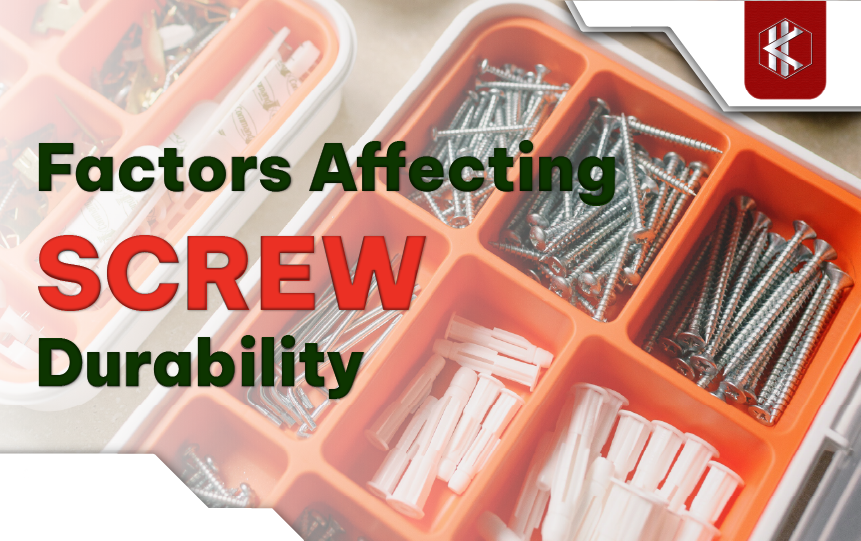Screws – Structure, Applications, and Factors Affecting Durability
Screws are widely used in machinery, equipment, construction, and daily life to connect various parts. Not only used in industry and construction, this type of accessory is also very popular in daily life.
In this article, Ha Ky Anh will introduce the concept and related issues of screws.
I. Introduction to screws
1.Concept
Theo wikipedia:
“A screw and a bolt are similar types of fastener typically made of metal and characterized by a helical ridge, called a male thread (external thread). Screws and bolts are used to fasten materials by the engagement of the screw thread with a similar female thread (internal thread) in a matching part.”
The shape of the screw is usually a cylindrical bar with a spiral thread. They are produced from materials such as steel, copper, aluminum, stainless steel, titanium, etc.
2.Components
- Screw head
- Screw body
- Screw diameter
3.Common screw types
Based on the classification of shape, material, and usage, people can encounter different types of screws on the market. Typical examples include hex screws, plated hex screws, flathead screws, roundhead screws, self-tapping screws, butterfly screws, anti-slip screws, wall screws, wood screws, etc.
II. Applications
1. Industry: Connect machinery and equipment such as cars, electronics, etc.
2. Construction: Bridges, buildings, pipelines, water/electricity systems, etc.
3. Daily life: Repair/maintenance, assemble household items,DIY…
Although they are very small accessories, users should also pay attention to quality and storage for safety. Poor quality screws can be dangerous.
III. Screw production methods
- Shaping
- Precision machining
- Heat treatment
- Electroplating
IV. Factors affecting screw durability
Screws are an indispensable product in the industry and daily life. Understanding the different types of screws and proper usage and storage will help optimize the efficiency and durability of the product.
- Manufacturing materials: Each type of material (such as carbon steel, alloy steel, copper, aluminum, titanium, lightweight alloys, etc.) will have different characteristics and applications.
- Manufacturing process: Applying new technology and modern manufacturing techniques not only increases the durability and accuracy of the product but also enhances its aesthetics. The use of good materials will help the product have a higher durability. Some common production methods include forming, precision machining, heat treatment, and electroplating.
- Environment: Moisture, temperature, pH, and other factors can affect the material and reduce the durability of the screws.
V. Precautions for use
- Check specifications to ensure that fasteners match the requirements of the application.
- Use the correct type of screws suitable for the intended use
- Screws should be installed properly, not too tight or too loose.
- When tightening and tightening screws, pay attention to tightening force and use tools of the right type and size to avoid damaging, deforming or breaking screws.
- Use high-quality materials, buy products from reliable manufacturers and store and use them properly.
VI. Store screws properly
- Store in a cool, dry place, away from direct sunlight and moisture.
- Use a carrying case to store screws
- Sorting them by type, size, material will save time and improve
Screws are an essential product in both industry and daily life. Factors affecting their durability include manufacturing materials, manufacturing processes, and the environment. Different materials and production methods have varying characteristics and applications, and using good materials can increase a product’s durability.Factors such as moisture, temperature, pH, and others can negatively impact the material and reduce the screws’ durability.
Contact Ha Ky Anh to order quality screws, suitable for your industry!





